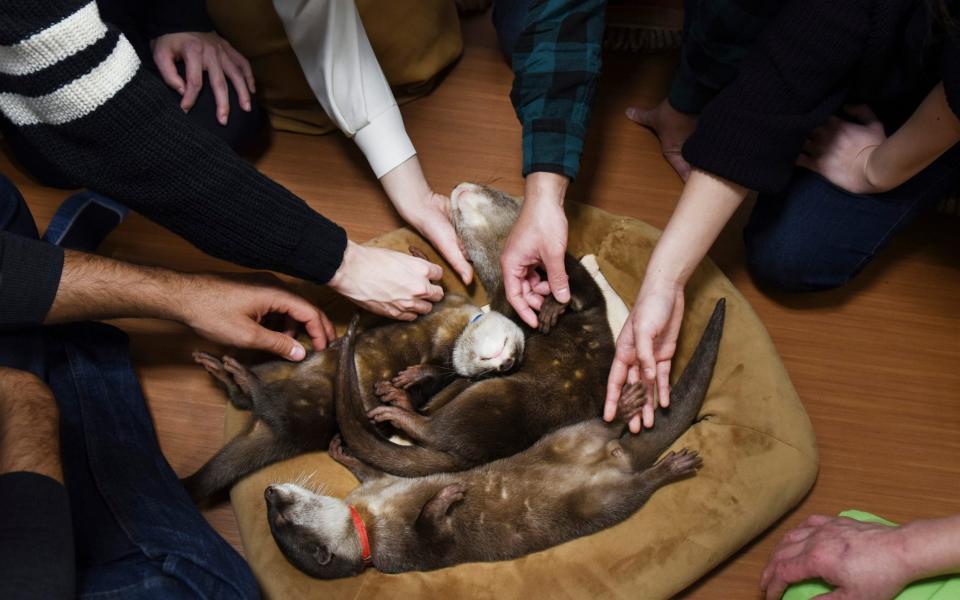Ban on international trade in otters aims to avert extinction by Instagram craze

The international trade in a social-media friendly otter has been banned, after influencers on Instagram were accused of fuelling their extinction.
The smooth-coated otter, which is found in India, Bangladesh, Nepal and several other Asian countries, is increasingly being poached from the wild to become a social media accessory.
Videos show the semi-aquatic creatures walking on a lead, playing with toys and looking for all the world like the perfect pet. Otter cafes, where visitors can stroke and interact with the animals, have sprung up across Japan.
However, the species is under threat: according to the International Union for the Conservation of Nature, smooth-coated otters are vulnerable to extinction. Demand for young otters in the pet trade is listed as one of the concerns for their survival.
Now, the trade in the creature will be heavily regulated after a vote by world leaders attending the 18th meeting of the Conference of the Parties to the United Nations Convention on International Trade in Endangered Species of Wild Fauna and Flora (CITES CoP18), currently being held in Geneva, Switzerland.
The animal will now be listed on Appendix I of CITES which lists species threatened with extinction and prohibits commercial trade in them internationally. This will effectively make the pet trade in otters illegal unless they are bred in captivity.

Mark Simmonds, senior marine scientist at Humane Society International, said: “The ‘cuteness’ of this species may prove their down-fall in that many people, especially in Asia, now want to own them.
"Hopefully this listing will also inspire further vital actions within the otters’ home ranges to ensure their survival. We commend India, Nepal and Bangladesh for bringing these proposals forward, and all the countries and conservation organizations that supported them.”
Mako sharks, known as the "cheetahs of the sea", have also been given a reprieve from commercial trade at CITES, after facing extinction because of demand for its meat and fins, and has been listed on Appendix II.
Mako sharks are one of the ocean's fastest predators and can reach speeds of up to 42mph, and jump to heights of 30ft. The species is classified as Endangered by the IUCN.
The short and longfin mako shark proposal, led by Mexico and also backed by multiple countries, faced fierce opposition from countries reluctant to see CITES involvement in industrial scale pelagic fisheries.
CITES Appendix II listings means international trade in the species’ meat and fins must be regulated. This will prompt regional fishing management organisations to address their woeful neglect of mako sharks caught in longline fisheries.
Rebecca Regnery, Humane Society International wildlife senior director, said: “Over-fishing, including for the lucrative Asian shark fin market, is having a devastating impact on longfin and shortfin mako sharks.
Securing CITES protections for these species is an important first step in stopping the brutally cruel and wasteful practice in which sharks and rays have their fins cut off their bodies, sometimes while fully conscious.
“But Appendix II protection doesn’t in itself ban trade, so to secure the future for these sharks and rays, this new CITES listings needs to be the start of a whole raft of other measures aimed at cracking down on this vile trade."

 Yahoo News
Yahoo News 